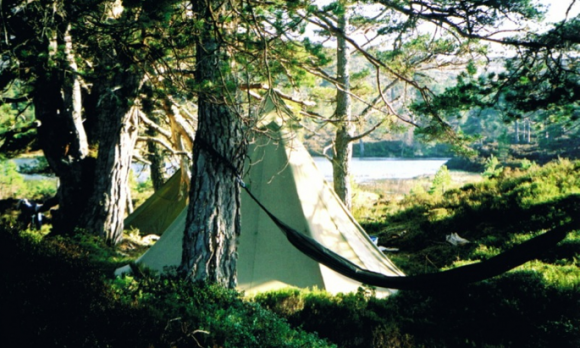Wild Things
Getting troubled youngsters into the great outdoors can do wonders for their behaviour, finds Jenny McBain. //
The environmental factors negatively impacting on teenagers are well documented. But what happens when those who may be young and disaffected are transplanted from concrete surroundings and constant digital hook-up to a wild setting?
Jennie Martin is founder and executive director of Wild Things! – a charity based in Findhorn in the north of Scotland, which delivers outdoor programmes for young people and vulnerable adults. Her work allows her to witness again and again the benefits being outside brings to her clients. And her enthusiasm for the healing power of immersion is infectious.
A recent five-day wilderness expedition involving teenagers from the learning support department is a case in point. The young participants are labelled as difficult and, by their own admission, they spend all their spare time gaming and computing.
Martin describes how the trip impacted on the group: “After a day which included kayaking, the teenagers were actually sitting round the fire, making things and telling stories, laughing and communicating with each other. It is moments like that which are just so rewarding. You see young people who are known to be aggressive and difficult and who supposedly can’t concentrate at school and yet they are completely obsessed with something like a spoon they are carving with us and are courteous and friendly.”
Martin now resides in a rural, coastal location but she once lived a very urban life studying film and TV in London. She describes how she came to realise that there was a need for children and young people to be given the opportunity to explore nature: “I’ve always been outdoors and always got a lot from it personally and I feel very inspired by being in wild places. So it was just a lovely progression to get to a point whereby I could help other people to have that opportunity.”
Thanks to Martin and her six colleagues many people are now experiencing what it is like to go for a walk at night, to build a fire using traditional methods and to follow animal tracks. They also build boats, tell stories, do craftwork and learn about the plants at their feet and the stars above.
There are two important aims woven into the work of Wild Things!: the first is to deliver health and cultural benefits to a varied client group. These are immediately tangible.
Martin says, “I’ve noticed over the years I’ve been working in this field that the therapeutic value of being out in nature is just immeasurable. If you could put it in to a pill and sell it you would be onto one of the wonder drugs of the century and yet it’s free.
“It’s actually far more accessible than a lot of people think. Confidence is needed to get up and get out there and that tiny bit of effort is repaid tenfold.”
But there are more idealist, immeasurable ambitions at play too. Specifically, the activities are designed to encourage people to develop a caring attitude towards conservation. Jennie has been inspired by the famous Scottish naturalist John Muir who persuaded President Roosevelt to set up national parks in the US by taking him on a three-day camping trip. Her charity hopes to encourage more ‘green’ attitudes by a similar process of experiential learning.
“There is no substitute for sitting round a fire or getting mud under our nails or feeling sweat trickling down our backs from climbing a mountain,” she says “There is a lot of evidence that actually spending time outdoors is actually more effective in terms of encouraging people to look after the environment than just providing information about biodiversity or habitat or whatever.”
Now that the charity is ten years old, it is seeking to make the somewhat tricky transition towards being a social enterprise with earned income streams. Jennie says, “At the moment our main challenges is not having the capacity to do the marketing and sales work because we are so focused on delivery and operations.”
That is about to change with the appointment of a suitably qualified new graduate employee who will seek to identify new contracts. Presently the staff are working with adults who are recovering from drug and alcohol addiction. This is going well. Summer camps aimed at mainstream children whose parents can afford to pay as well as those who require subsidy are also proving popular and successful. So, too, are the leadership courses geared towards social workers, teachers and business people who want to learn how to lead groups in the great outdoors.
So what next for Wild Things? “I am really hoping that our training course will take off and we can bring in more of an income stream from that,” Martin confirms. “We also want to be able to continue working with primary schools and secondary schools. And it would be great to get more contracts to work with vulnerable adults. We have seen our clients derive so much benefit from spending time outdoors. Perhaps doctors could be persuaded to write green prescriptions entitling their patients to some time with us.” Now that would be innovative and far thinking!















Write Your Comment